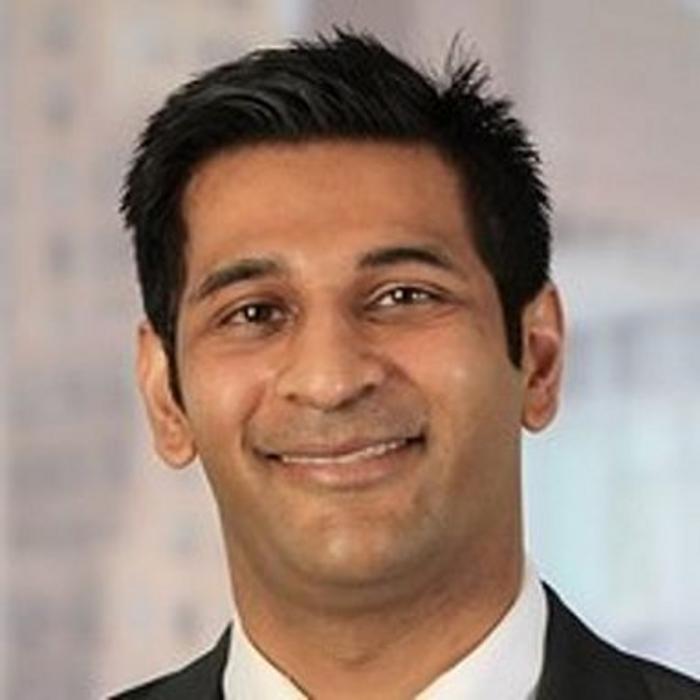Dr. Arnab Ghosh, an assistant professor of medicine at Weill Cornell Medicine, has been distinguished as an Emerging Leader in Health and Medicine Scholar by the National Academy of Medicine (NAM). This prestigious program is designed to empower the next generation of leaders in healthcare by integrating them into a collaborative network that includes seasoned NAM members and fellow scholars. The initiative is structured to facilitate innovative approaches in tackling enduring health challenges through cross-disciplinary teamwork and transformative policy change, situating emerging experts like Dr. Ghosh at the forefront of national health agendas.
Dr. Ghosh’s multifaceted expertise uniquely positions him at the intersection of clinical medicine, social science, and policy-oriented research. His work underscores the intricate relationship between climate change and health outcomes, a domain that has gained increasing recognition as one of the most pressing public health challenges of our time. His nomination by Dr. Deborah Estrin, a leading computer science professor at Cornell Tech and advocate for interdisciplinary impact, highlights Dr. Ghosh’s exceptional capacity to integrate diverse perspectives into powerful, actionable research.
Following a path less traveled by traditional physicians, Dr. Ghosh combines clinical practice with rigorous scientific inquiry funded by both the National Institutes of Health (NIH) and the National Science Foundation (NSF). His clinical responsibilities at NewYork-Presbyterian/Weill Cornell Medical Center complement his research role in Weill Cornell’s Division of General Internal Medicine. Notably, his previous recognition as an NIH Climate and Health Scholar has deepened his understanding of how environmental factors contribute to health disparities and disease burden, especially among vulnerable populations.
Dr. Ghosh’s research has been profoundly shaped by his direct experience providing care in the aftermath of extreme weather disasters. His involvement in response efforts during the 2009 Australian wildfires, Hurricane Sandy in New York City (2012), and Hurricane Maria in Puerto Rico (2017) exposed him to the disproportionate toll these events exact on marginalized groups. These experiences have informed his focus on how climate-driven disasters exacerbate social inequities and compound health risks for communities often neglected in policy discussions.
At the core of his scientific inquiry lies the development of targeted interventions to mitigate health risks posed by climate phenomena such as heatwaves, hurricanes, intense precipitation, and flooding. These environmental stressors substantially impair air quality, disrupt food supply chains, and challenge public health infrastructure. The epidemiological consequences include exacerbations of cardiovascular and respiratory conditions, heat-related illnesses, and psychological stress, all demanding innovative, evidence-based solutions to reduce morbidity and mortality.
Dr. Ghosh advocates for embedding climate and health considerations into the scientific research agenda and policy frameworks. He stresses that the increasing frequency and intensity of extreme weather events call for urgent, coordinated responses at the national level. Emphasizing the necessity for interdisciplinary approaches, he asserts that solutions must extend beyond medical interventions to encompass socio-environmental determinants and resilient health system design.
In his advisory role at the U.S. Department of Health and Human Services’ Administration for Strategic Preparedness and Response, Dr. Ghosh has contributed significantly to the Climate Resilience for Health Care Toolkit. This resource aims to equip healthcare organizations with strategic guidance for emergency preparedness and resilience planning amid escalating climate threats. His frontline perspective underscores concerns about the adequacy of current systems in facing imminent hurricane and heatwave seasons, highlighting urgent gaps in adaptive capacity.
Locally, Dr. Ghosh’s influence extends into the largest county health system in the U.S., Health + Hospitals New York City, where he serves as an Emergency Management Fellow. His expertise informs climate and flood mitigation strategies, reflecting a crucial integration of climate science, urban planning, and public health practice. Moreover, his role on the advisory board for New York City’s Master Urban Forestry Plan demonstrates his commitment to leveraging natural infrastructure—particularly urban tree canopy expansion—to mitigate heat, flooding, and air pollution, with an eye toward environmental justice.
Of particular concern to Dr. Ghosh is the heightened vulnerability of older adults to extreme heat, a demographic trend exacerbated by global warming. He co-leads the Initiative for Extreme Heat and Aging, a multidisciplinary collaboration spanning Cornell and Weill Cornell Medicine. This project seeks to deploy scientifically rigorous, technologically innovative, and justice-centered approaches to protect aging populations from climate hazards. The initiative exemplifies a new paradigm in climate-health research, synergizing biomedical science, technology, and social equity.
Dr. Ghosh’s emphasis on cross-sector collaboration reflects a profound understanding that climate-adaptive health interventions require holistic and systemic solutions. He rejects simplistic, biomedical-only approaches, advocating for multi-dimensional programs that address structural determinants of vulnerability. According to Dr. Ghosh, harnessing the interests and expertise of stakeholders across public health, urban planning, data science, emergency management, and community organizations is essential for scalable and sustainable impact.
As part of his three-year engagement with the National Academy of Medicine’s Emerging Leaders program, Dr. Ghosh will engage with mentors and collaborate on initiatives cutting across a spectrum of disciplines, including pediatrics, psychiatry, infectious diseases, and biomedical engineering. This interdisciplinary network aims to cultivate novel insights and translational strategies to confront evolving health threats linked to environmental change, positioning Dr. Ghosh among a cadre of pioneering scientific leaders.
In summary, Dr. Arnab Ghosh exemplifies the new wave of physician-scientists addressing the climate-health nexus with innovation, urgency, and interdisciplinary collaboration. His work embodies the convergence of clinical insight, public health principles, and environmental science, charting a path toward resilient health systems and equitable interventions in an era of climatic uncertainty. His recognition as an Emerging Leader signalizes not only personal achievement but also the critical importance of integrating climate considerations into the future of health research and policy.
Subject of Research: Climate Change and Health; Climate-Related Health Interventions; Health Equity and Environmental Justice; Emergency Preparedness and Resilience in Healthcare Systems; Aging and Extreme Heat Adaptation.
Article Title: Dr. Arnab Ghosh: Pioneering Climate Resilience in Medicine through Interdisciplinary Leadership
News Publication Date: Not provided
Web References:
https://vivo.weill.cornell.edu/display/cwid-akg9010
https://nam.edu/news-and-insights/nam-announces-10-emerging-leaders-in-health-and-medicine-2025/
https://nam.edu/
https://factor.niehs.nih.gov/2023/12/feature/1-feature-nih-names-climate-and-health-scholars
https://tech.cornell.edu/people/deborah-estrin/
https://extremeheat.us/about/#:~:text=to%20Extreme%20Heat-,The%20Cornell%20Initiative%20on%20Aging%20and%20Adaptation%20to%20Extreme%20Heat,and%20digital%20tools%20as%20levers.
Image Credits: Weill Cornell Medicine
Keywords: Internal medicine, Health care, Natural disasters, Public health




